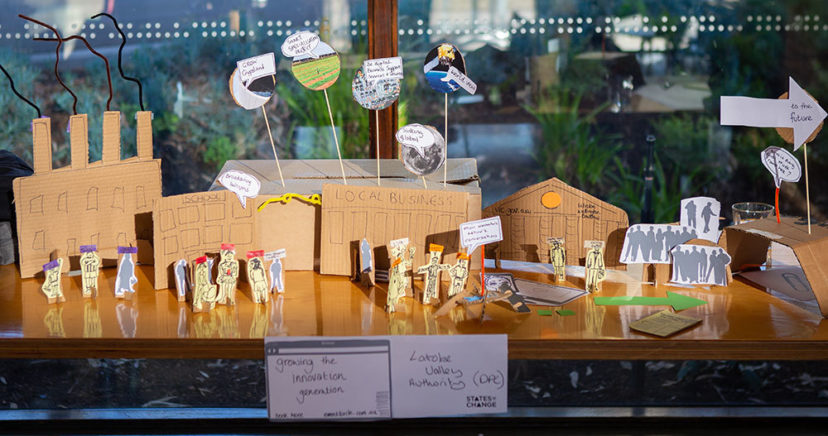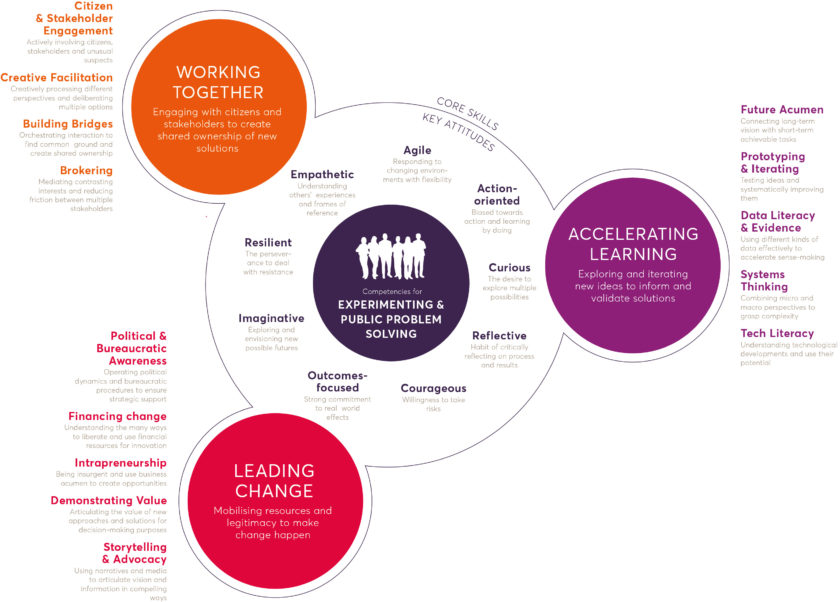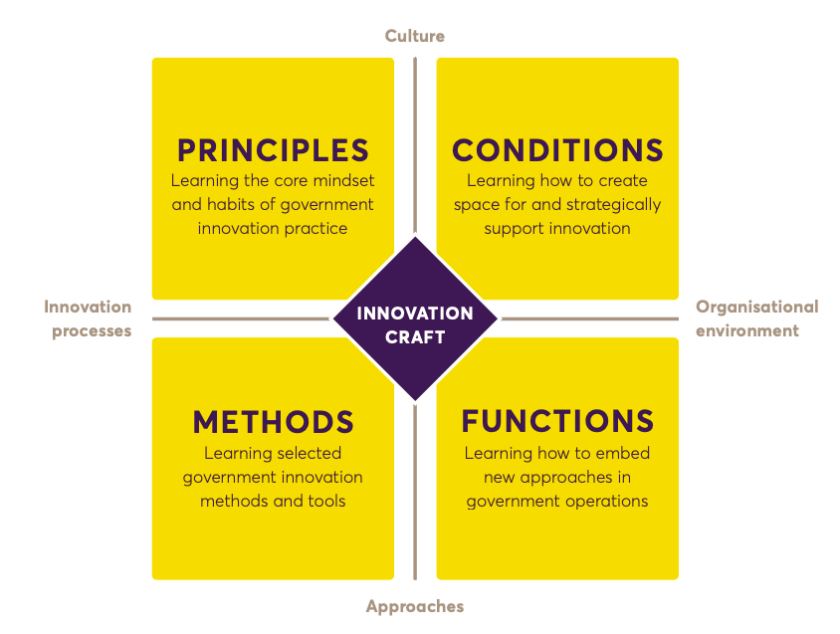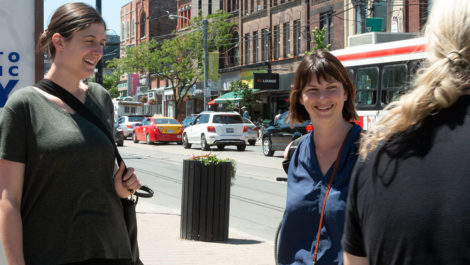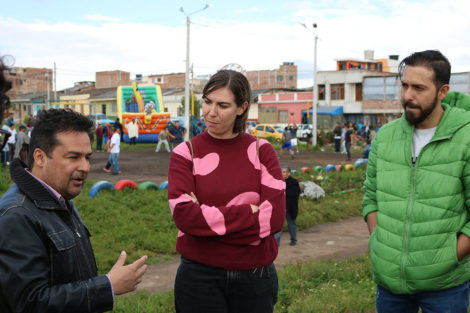Why we need to go beyond individual methods or approaches to also focus on innovation craft - the behaviours, mindset and culture that enable innovation in government.
We’re operating in the shadow of decreasing trust in public institutions, our governing models and even democracy itself, so it seems only timely to ask: How do we (re)create the legitimacy of government interventions and connect better with people in the process?
And what does it actually look like to “serve the public” effectively and meaningfully, as public servants and organisations are mandated to do?
We know that governments around the world are already committed to discovering better answers to these questions. They’re exploring how to transform their institutional operations to improve their capability to deal effectively with the challenges of the 21st century. To date this has involved a mix of new cultural practices, mindsets, skills, methods and tools.
Consequently, what we are dealing with is an entirely new way of working that relies on more than applying new methods.
The challenge that most governments are facing is how to actually enable this transformational change to happen, and how to practically develop the capability and capacity to do so.
Public servant roles: change agents doing experimental problem solving
This echoes the point made by Geoff Mulgan in the ‘Art of Public Strategy’: public organisations cannot merely adopt a strategy of survival by adapting to their environment. As a public official, your purpose is to shape the environment.
Consequently, public servants are increasingly forced to professionally act (and identify as) ‘change agents’ (not solely administrators or analysts) responsible for processing political intentions and ideas in creative and outcomes-focused ways.
For this reason, we’ve chosen to interpret the core activity of public officials as experimental problem-solving - fundamentally reframing and changing the way public organisations approach how they learn, how they collaborate and how they lead and manage change processes (read more in Nesta’s competency framework, featured below).
This suggests that we are not dealing with a practice that can be codified into a method specification, practice guide, toolkit or any other “standard recipe”, but rather a way of approaching your work.
We find it useful to think of this as a craft. Innovation craft is learned and embodied over time, through practice and continuously renewing through action and sense-making within the changing environments in which you work. And it is something that is more than a technical method, combining practical expertise with cultural change and contextual navigation and flair.
Public innovation craft
In something of a crude simplification, we see the core elements of public innovation craft as effectively and simultaneously navigating and dealing with the areas illustrated in the figure below here (taken from the States of Change curriculum) - in order to increase the ability to deal effectively with public problems.
The four dimensions are:
- Methods. This refers to the technical ability to learn, take up and apply innovation methods as a new kind of approach and process in developing new solutions and/or policy options. This is often the most practical place to start because methods can be applied to concrete problem solving activities and enable learning by doing.
- Principles. For a new method to be strategically applied and sustained over time as a new way of working (going beyond single projects or pilots), there has to be a continuous focus on what principles, mindset and instincts should shape the use of the method, and how new methods, approaches and processes should change the culture and habits of the organisation (or vice versa).
- Conditions. Any successful application of innovation in government is dependent on the ability to create the appropriate conditions and enabling environment within public organisations. The space for innovation and supporting new ways of working needs to be created at a strategic level. Consequently, there is a need to develop skills on how to build these - including how best to lead, organise for, manage, support, incentivise and sustain innovation efforts - both structurally and culturally.
- Functions. To make the most of and sustain innovation approaches in government (and go beyond one-off innovation projects and isolated labs or hubs), there is a need to systematically explore and experiment with how innovation can be embedded in (and potentially transform) core government functions. This includes in roles, tasks and operating models. For example, how functions like policy processes, procurement, or regulatory procedures are required to adapt or change in light of altering your approach - or the roles of policy-makers, procurement officers or regulatory experts.
This broader focus on craft over and above methods changes the approach to innovation learning for dealing more effectively with public problems.
What we need is a dynamic application of new methods and approaches that rely on developing new mindsets, attitudes and skills in continuous interplay with the organisational environment - meaning a diverse, unique, and context-specific set of techniques, tactics, mental models and cultural practices.
Towards better craftmanship when dealing with public problems
In the last couple of years, we have been working with governments and their publics across five continents within the States of Change learning collective.
If there is one recurring pattern, it is a profound identity-crisis at multiple levels of government. Now is the time to ask fundamental questions about the purpose of government institutions: What do good service delivery systems look like and why did we create them in the first place? And what it is practical meaning of being a public servant and what should it mean to “serve the public”?
While there are many answers to these questions and we are still just exploring how to answer them, the lack of focus on the craft of doing innovation is concerning.
It not only leaves innovation projects and programmes as small islands in the larger landscape of government development practice, but we are also failing to develop new change capacity at the core of government operations.
Moreover, it also leads to a frequent underestimation of what it actually takes to enable a useful uptake of innovation in government resulting in actual new ways of working.
When public organisations have been given a mandate to do something new, they have often emphasised cognitive learning about methods rather than immersive and experiential learning focused on innovation craft. With States of Change, we are attempting to create the space and learning environments for rehearsing new practical ways of working differently, with an emphasis on new mindsets and principles combined with the application of new methods.
We’re also doing this in ways that explore and establish the conditions and functions needed to create the space and the support required to make it a strategic effort.
In this way, we can explore and rehearse new ways of approaching how government officials and organisations can begin building a new organisational culture where we systematically:
- Understand and capture everyday experiences of citizens, unpacking the causes and consequences of public problems, and analysing their implications.
- Imagine and expand the scope and options for creatively identifying or generating new ideas
- Make sense of and involve the right experiences and expertise in shaping ideas and initiatives and develop policy interventions accordingly.
- Shape and test the effectiveness and legitimacy of new initiatives and accelerate learning about how they could work in practice
- Deliver and implement initiatives in ways that increase the likelihood of achieving desired outcomes through feedback loops and collaborative problem-solving
- Build and embed new ways of working that have proved more effective and delivered un-obvious solutions to pressing challenges.
